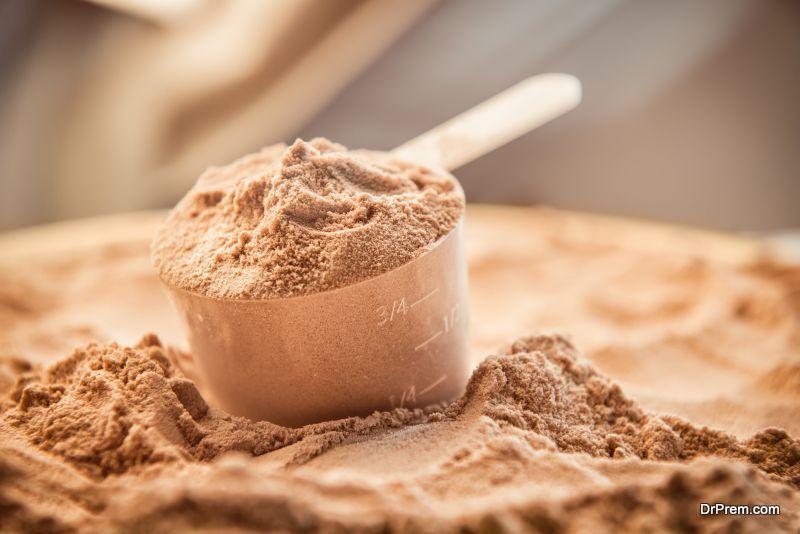Very often at the gym, we find body builders gulping down protein shakes after their workouts to replenish their bodies from muscle loss and fatigue. These shakes contain water-soluble protein powders that come in different tastes and flavors. Protein powders are concentrated sources of proteins extracted from animal or plant sources. There are different types of Protein powder sources available in the market today.
Whey protein powder

Whey protein powder is one of the most commonly used type of protein powders as it is easily absorbed by the body and is easy to mix and consume. Whey protein is further processed to form Whey protein Isolates, which have the highest BCCA values amongst proteins. New Zealand Whey Protein is an industry recommended whey protein powder that is reported to satisfy all the parameters of the industry.
Casein protein powder
Milk primarily consists of two protein sources – whey and casein. Casein is the oldest form of protein powder, which was used for training purposes. Its slower absorbing nature due to prolonged digestion has made casein powder obsolete and whey powders rose in popularity.
Egg protein powder
Egg is a wonder food by itself and a great source of protein. Egg whites are processed to form egg protein powders. However, this protein powder does not give a fullness associated with having proteins, as the yolk is not used. But, it is a good source of protein for people who are allergic to milk protein sources.
Pea protein powder
A considerably new source of protein powder, pea protein is popular with the vegans. It can successfully satisfy all the qualities delivered by animal protein powders, but more research needs to be put in before it can be popular as whey proteins.
Soy protein powder
Soy protein powder is another plant-based protein and is very popular in Japan, especially with the women, as the phytoestrogens present in it shield against breast cancer and post menopause symptoms. However, since all the soy is genetically modified, there is a cloud of doubt lingering over it.

Protein powders provide high-quality protein to our bodies, which are easily digestible and absorbable. So, when exactly are we supposed to be having these sources of protein powder?
- Teens- Teenagers need a higher consumption of protein in general, as it’s their age for growing and developing their bodies. An average person needs 0.8 grams of protein per kilogram of body weight every day.
- Body builders- People who hit the gym regularly and workout with heavy weights require protein powders to build muscles. This goes for beginner body builders too. Body builders need anywhere from 1.2 to 2.0 grams of protein per kilogram of body weight depending on the intensity of their workouts.
- Training- When you are training your body for an upcoming marathon or any such sporting event; it is advisable to have protein powders as your body requires more protein than it usually does. Athletes need 1.0 to 1.5 grams of protein per kilogram of their body weights.
- Recovering injury- Athletes recovering from sports injuries require extra protein to help them heal quicker and better.
- Vegan- If you are a vegan and not getting the required amount of protein from your regular food, you can add protein powder to your diets.Article Submitted By Community Writer




